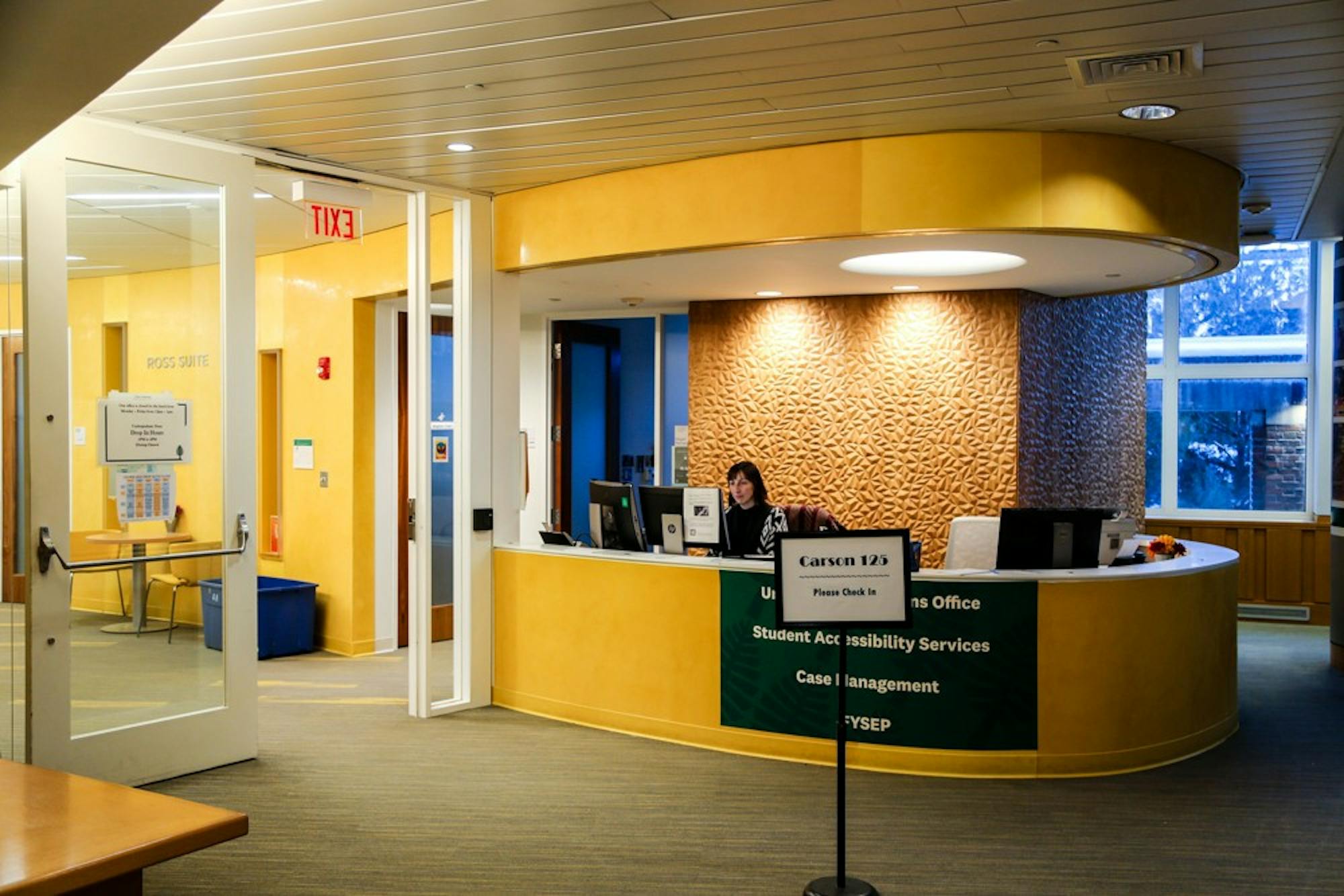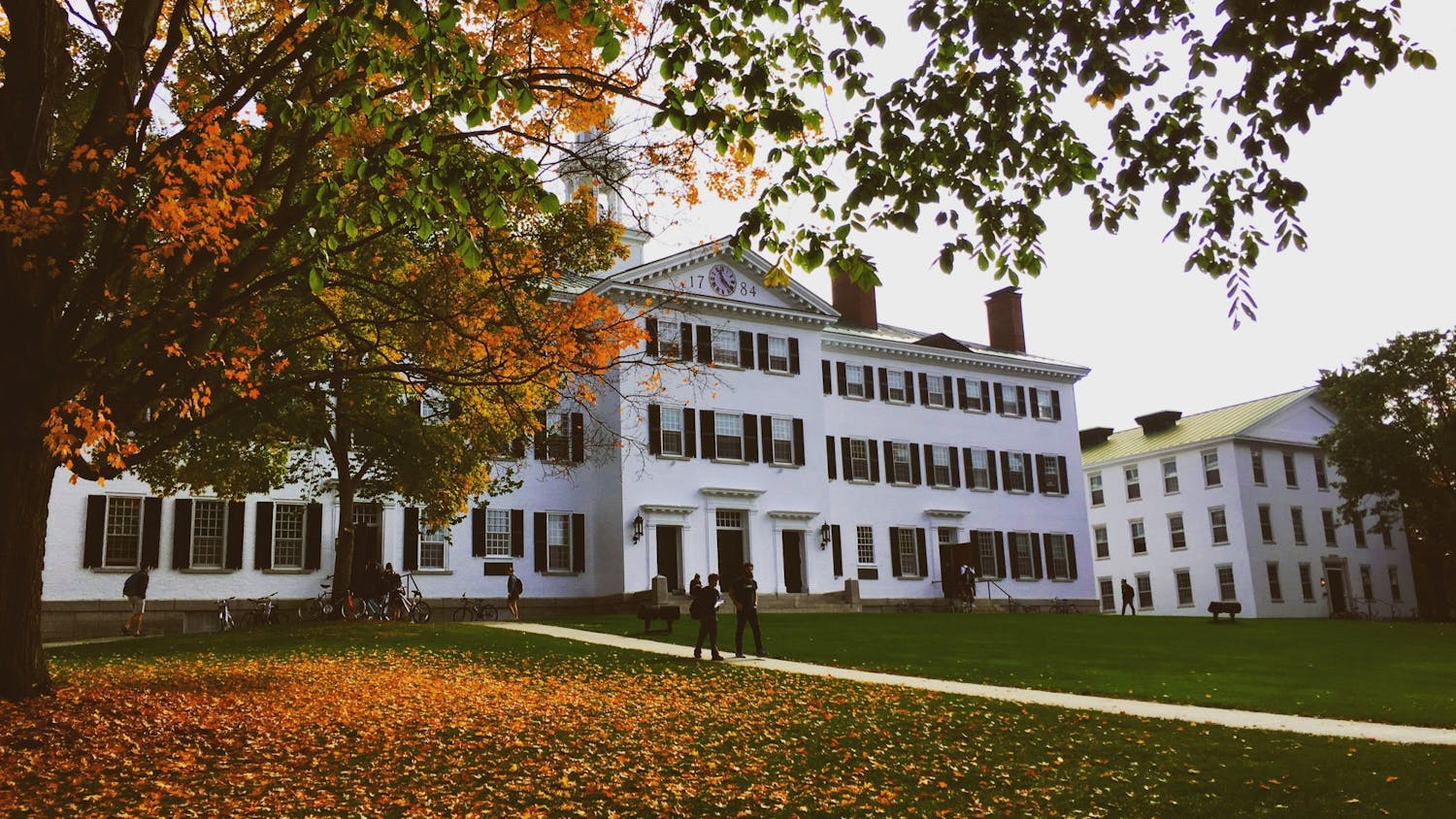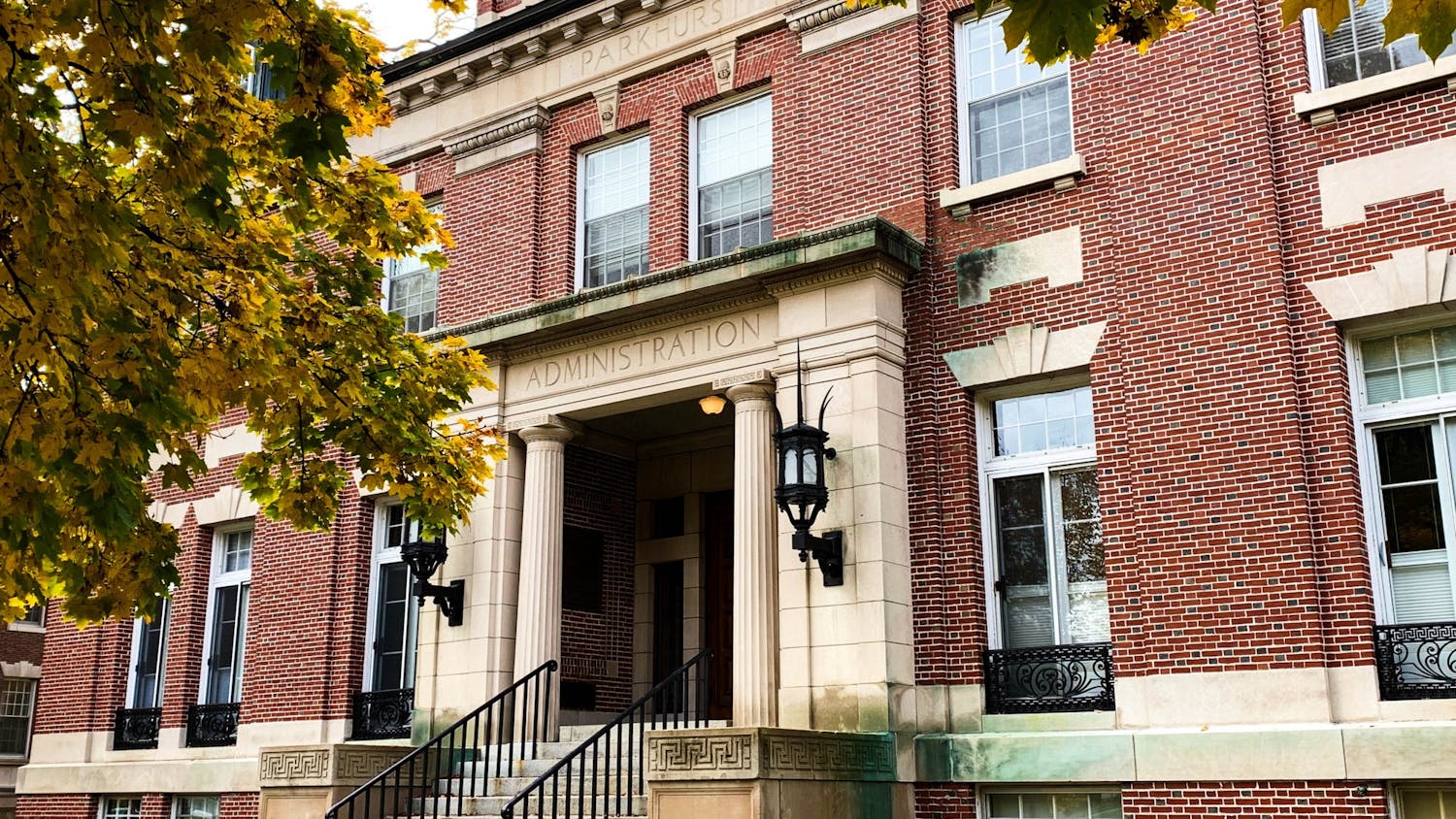With COVID-19 cases on the rise across the country and in the Upper Valley, some students have voiced concerns over the availability of support from the College should they become infected. According to several students who contracted COVID-19 during the fall term, the College’s academic and mental health support systems were inadequate during their illness and recovery.
Students infected with COVID-19 may struggle with symptoms for weeks, potentially causing them to miss class and fall behind in their work. However, should students need extensions to complete assignments or exams beyond the official end of the term, they have limited options, which undergraduate deans must approve. Some have complained that the student-driven process of obtaining accommodations is an extra burden on top of recovering from a serious illness, and one that can be draining on students’ time and mental health.
Lauren Pinchuk ’21, who contracted what she described as a “severe” case of COVID-19 for roughly two weeks in mid-October while living in Quechee, Vermont, said that although her professors were willing to accommodate the extra time she needed to complete assignments and final papers, she felt that her undergraduate dean “should have advocated for [her] more than he did.”
While recovering from the virus, Pinchuk said she was “sleeping for 15 hours a day, was exhausted constantly, spoke very slowly and couldn't form complete sentences in [her] brain.” After reaching out to her undergraduate dean, Teoby Gomez, to inquire about academic accommodation options, Gomez initially responded informing Pinchuk that she had the option to take an “Incomplete” to allow her to finish her coursework after the term’s official end. About one month later, however, Pinchuk said Gomez told her that the “Incomplete” option was unavailable with no further explanation.
Pinchuk then wrote an email to Dean of the College Kathryn Lively that her professors could attest to her hard work in her classes and had been ready to grant her “Incompletes” in their courses, but her dean was no longer willing to do so.
Though Gomez ultimately granted Pinchuk an “Incomplete” for one of her courses, she said she was still forced to “write about a paper a day” during the final exam period in order to submit her work on time and spent “hours of work while on the clock to finish [her] finals” advocating for herself.
“There should be much more lenience and empathy about what we’re going through right now,” she said. “The very least they could do is listen to the students more and offer “Incompletes” and just more empathy in general when students are going through a rough time.”
Gomez and Lively did not respond to requests for comment.
Anne Hudak, interim dean of the Undergraduate Deans Office, wrote that “at times [the Undergraduate Deans Office has] to share information that is not the information students are hoping to hear and encourage students to remain open-minded with regard to alternative paths forward that deans may offer.”
She added that the office has “had several students who have needed accommodations due to COVID-19,” and that professors have been “very accommodating” to the “individual circumstances that reach beyond COVID.” According to Hudak, “all of the College's academic support resources” are available to students, regardless of their location or health situation.
In an email statement, College spokesperson Diana Lawrence added that the College staffs a doctor on call “to provide medical recommendations and support” for students infected with COVID-19.” Additionally, infected students living locally off campus may opt to stay in on-campus quarantine and isolation housing.
Nadia Clement ’20, one of Pinchuk’s roommates who contracted COVID-19 at around the same time, said that though her case was mild enough that she “didn’t miss much class at all” and she did not need to contact her undergraduate dean, her professors were understanding of her situation when she asked for extensions on some of her classwork.
“A lot of them said things to the effect of, ‘Of course, take all the time you need. Don’t worry about this,’ — which was great,” she said. “My professors were all super supportive, and even though I didn't need any big accommodations, they were super accommodating and were very considerate and compassionate.”
Although the Undergraduate Deans Office is available to support students, Hudak noted that there is no singular process for students in need. She wrote that “specific accommodations depend on individual circumstances,” as “students are affected by health issues in different ways.”
“The deans will work with the student to review options appropriate to their individual circumstances, which are always at the discretion of individual faculty members,” she wrote.
Pinchuk said that she thinks that the College should take more input from students and prioritize “more outreach to students as a proactive measure” to ensure that student voices are represented in COVID-19 policy decisions.
“The thing that Dartmouth needs to work on the most is mental health,” Pinchuk said, noting the lack of resources for students.
Martha Aguirre Rubio ’22, who contracted COVID-19 while taking remote classes from home this fall, agreed that mental health support needs to be more of a priority for the College.
Aguirre Rubio and her mother tested positive for COVID-19 at the same time in mid-November. Although her mother tested negative after about 10 days, Aguirre Rubio continued to test positive for nearly a month. She said that before she tested negative in early December, her doctor explained that she might have “long-haul COVID,” a rarer case of the disease in which an infected person can continue to experience symptoms for months. These cases can sometimes cause more serious issues.
“Mentally, it had taken a toll, and I’m someone who’s had issues with being depressed and being anxious,” she said. “I was really afraid that I was going to have the long-haul version of COVID, and it was troubling to see some of those patterns, like depression and anxiety, come back.”
Aguirre Rubio informed her undergraduate dean, Susan Taffe Reed, about her situation “because there was a very real possibility that I could do very poorly on finals” after becoming infected so late in the term, but said that “the response [was] really underwhelming.” She said that her dean informed Dick’s House of her condition and told her that she had the option of petitioning for an “Incomplete” if needed.
“That was really the best she could do for me,” Aguirre Rubio said. “I think she was trying hard, but it’s an issue that there’s not really resources on how to deal with [students contracting COVID-19].”
Aguirre Rubio said she believes that the College and professors should have been “better prepared” to accommodate infected students, given that there was a “very real possibility” of students contracting COVID-19. She said that her professors, while “really sweet” and “lenient” during her recovery, seemed “caught off guard” when she informed them of her positive test.
“I don’t think they were prepared for the possibility of having students who had COVID,” she said. “It’s not their fault, but I wish that Dartmouth professors had been trained on how to deal with this or had more flexibility on how to approach teaching students with COVID.”

Lauren ('23) is news executive editor for The Dartmouth. She is from Bethesda, Maryland, and plans to major in government and minor in public policy.




